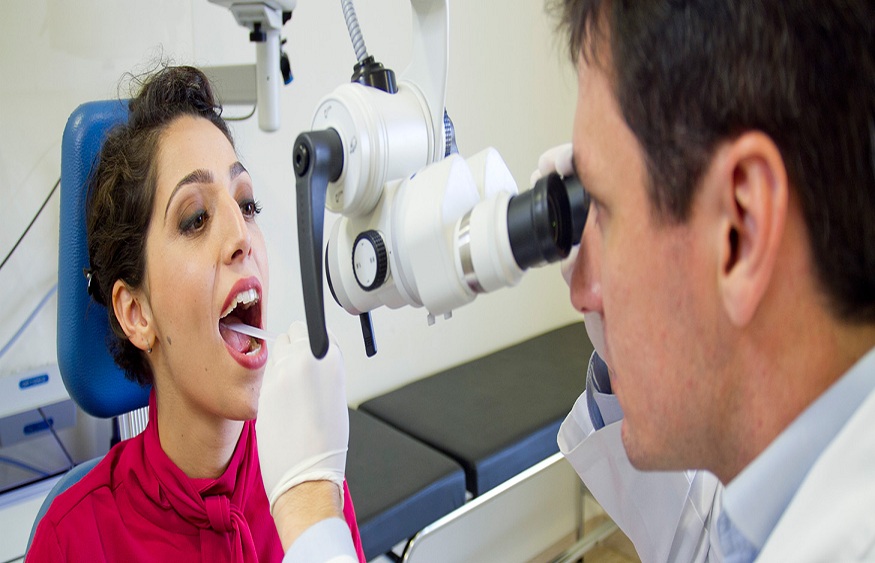If you’ve been struggling with halitosis, you’re not alone. Many people experience bad breath at some point in their lives, and it can have a significant impact on your self-esteem and social interactions. Fortunately, there are professionals who specialize in diagnosing and treating halitosis.
In this blog, we’ll discuss the importance of seeking help from a Halitosis treatment dentist and how to find one near you.
Finding the Right Halitosis Treatment Centre
If you’re searching for a halitosis treatment centre near you, consider these steps to find the right professional for your needs:
Ask Your Dentist: Start by consulting your regular dentist. or treatment centres.
Online Search: Conduct an online search using keywords like “halitosis doctor near me,” or “halitosis treatment centre near me.” This can help you identify nearby options.
Read Reviews: Look for reviews and testimonials from previous patients to gauge the reputation and quality of services offered by potential treatment centres.
Check Qualifications: Ensure that the professionals at the treatment centre are qualified, experienced, and licensed in their respective fields. A dentist or oral specialist should have the necessary credentials.
Consultation: Schedule an initial consultation with the treatment center you choose. This will give you a chance to discuss your concerns, learn about their approach to halitosis treatment, and ask any questions you may have.
Halitosis Treatment Options
Halitosis treatment can vary depending on the underlying cause. Here are some common treatments that a halitosis treatment centre may offer:
Improved Oral Hygiene: Dental professionals can provide guidance on proper brushing and flossing techniques and recommend oral hygiene products to reduce bacteria and odours.
Gum Disease Treatment: If gum disease is the culprit, the centre may offer periodontal treatments to address the issue.
Dry Mouth Management: Halitosis treatment dentist can suggest ways to alleviate dry mouth, such as drinking more water or using artificial saliva products.
Dental Procedures: If dental issues are contributing to bad breath, treatments like cavity fillings, root canals, or extractions may be necessary.
Medical Referral: In some cases, halitosis may be a symptom of an underlying medical condition. The treatment centre may refer you to a medical specialist for further evaluation and treatment.
Maintain Good Oral Hygiene: Brush your teeth at least twice a day and use dental floss daily to remove food particles and plaque. Don’t forget to brush your tongue, as it can harbour bacteria and contribute to bad breath.
Stay Hydrated: Drinking enough water helps prevent dry mouth, a common cause of halitosis. Aim for at least eight glasses of water per day.
Sugar-Free Gum or Lozenges: Chewing sugar-free gum or sucking on sugar-free lozenges can help stimulate saliva production, which can naturally cleanse the mouth and reduce bad breath.
Avoid Tobacco and Alcohol: Both tobacco and alcohol can contribute to dry mouth and bad breath. Quitting smoking and moderating alcohol consumption can help improve your breath and overall oral health.
Watch Your Diet: Certain foods like garlic, onions, and spicy dishes can leave a strong odour in your mouth. Be mindful of your diet, and consider avoiding these foods before important social events.
Regular Dental Check-ups: Schedule routine dental check-ups and cleanings with your dentist. These visits can help detect and address oral health issues before they become more severe. Search for “halitosis specialist near me” or “halitosis treatment near me” to find a specialist who is thorough with their follow-up treatments.
Manage Medical Conditions: If you have a medical condition that contributes to bad breath, such as diabetes or acid reflux, work closely with your healthcare provider to manage it effectively.
Use Mouthwash: Some antimicrobial mouthwashes can help reduce bacteria in the mouth and temporarily mask bad breath. However, they should not replace regular oral hygiene practices.
Breath Fresheners: Carry sugar-free breath mints or breath sprays for quick refreshment when needed.
Stress Management: High stress levels can lead to dry mouth and bad breath. Practice stress-reduction techniques like yoga, meditation, or deep breathing exercises.
Conclusion
Halitosis can be a distressing condition, but it’s important to remember that help is available. Seeking assistance from a halitosis treatment centre or specialist near you can lead to the identification of the root cause of your bad breath and the implementation of effective treatment strategies. Don’t let halitosis hold you back from enjoying a confident and fulfilling life—take the first step towards fresh breath and improved oral health today.




